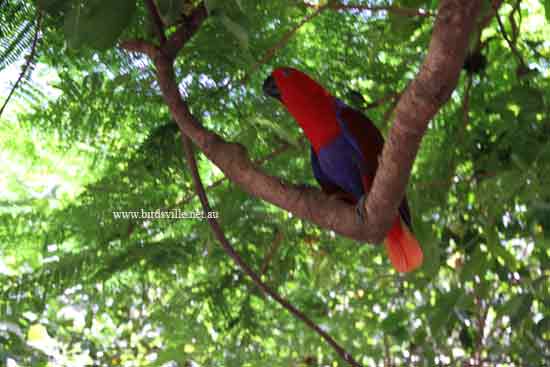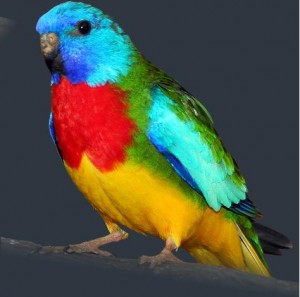Eclectus Parrot

The eclectus parrot has roughly ten sub-species which all stem from the dominant race of the “grand Eclectus”. They can be found in many locations around the world such as New Guinea, the Solomon Islands, Cape York Peninsula and Australia. For these birds, intelligence is the key. Make sure you decorate their cage with toys that they can chew, swing and play on. This will not only make your bird much happier but it will greatly decrease the chances of your bird developing bad habits like feather plucking or excessive squawking.
Pet Bird – Eclectus parrots as pets are beautiful to look at as well as being an active member of the family! They live for around 45 years and are reasonably easy to breed. They are very good talkers and will always surprise you with how fluent their words are pronounced.
Bird Cage – As with any bird, there is no such thing as a cage too big! It is recommended that you house your bird in the largest cage you can afford; this will benefit the wellbeing of your bird.
Bird Food – Eclectus parrots should be fed a healthy diet which includes fruit, vegetables, seed, minerals, calcium, figs and even some types of flowers! With a healthy diet, your Eclectus parrot will become very robust. Vitamin supplements should be given regularly as well as the treatment for worms and mites/lice. Do not feet your parrot grit.
Nature–Make sure they are socialized from a young age preferably with another eclectus

of the opposite sex. This is important because as an older bird, your parrot may become less interested in its own kind when it reaches breeding age. It is also important that you provide behavioural enrichment to keep the birds mind active, when it learns that a reward is given for good behaviour it will be more likely to tame up quicker. When handling your bird you should be firm yet gentle, never flinch or be scared of the bird because this will make them feel dominant over you and in turn, will encourage bad behaviour. The best thing you can do for your bird is spend time with it, not spend time on it.


